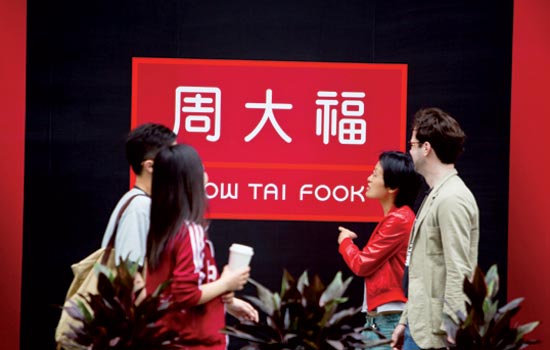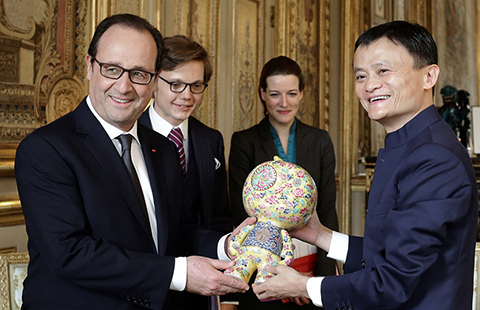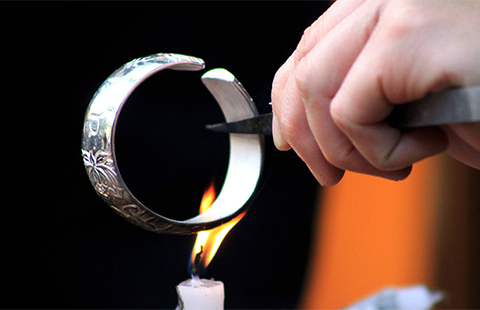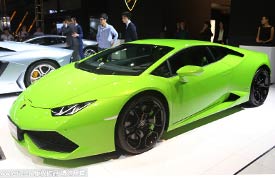

|
 |
|
Pedestrians walk past a Chow Tai Fook jewelry store in Nanjing Road, Shanghai. According to Bain & Co, the growth rate of China's luxury market will decline to about 20 percent this year compared to about 30 percent in 2011. [Photo/China Daily] |
Mainland market is unusual with 60% of products bought as gifts
The sales of some luxury brands have seen slower growth on the Chinese mainland as an economic slowdown has led to weak demand.
Hermes International SCA, which released its second-quarter sales figures on Thursday, said its revenue growth in Asia excluding Japan was 24.6 percent in the first half of 2012, while the growth was 30.2 percent in the same period of 2011.
Hong Kong-based Chow Tai Fook Jewellery Co Ltd, the world's largest jewelery retailer by market value, announced on July 11 that its sales volume growth for the three months ending June 30 was 16 percent, while the growth was 61 percent from March 2011 to March 2012.
The same day, Burberry Group Plc, which released its trading update for the three months ending June 30, said that its revenue growth in the Asia-Pacific area dropped to 18 percent from 67 percent in the same period of 2011.
Other main luxury brands were also seeing slower growth in China's market in the first quarter of this year, although their interim financial reports have not been released yet.
LVMH Group, the world's leading luxury products group, released its first-quarter revenue on April 18 that showed Asia had about 10 percent revenue growth for the group's fashion and leather-goods department, which has Louis Vuttion, Fendi and Marc Jacobs. But the region contributed 32 percent of the department's revenue in 2011.
The growth of China's luxury market will be down to about 20 percent this year, while the number was about 30 percent in 2011, according to a report of Bain & Co.
The decline in the luxury market's growth stems from the slowdown of China's overall economic growth, said Zhou Ting, executive director of the research center for luxury goods and service of University of International Business and Economics. "It is difficult to forecast how long the decline will last," Zhou added.
Luxury consumption growth is usually about twice that of a country's GDP growth, said Yang Qingshan, guest researcher on luxury goods and services at UIBE. China's GDP growth fell to 7.6 percent year-on-year in the second quarter, the lowest in three years, according to the National Bureau of Statistics.
"According to the GDP growth, it is normal for the luxury market to increase slowly during the period," Yang said.
Also affecting luxury goods sales is a new policy, released by the State Council early this month, that forbids civil servants from spending public funds on luxury items.
The policy, which will be effective starting Oct 1, will have a long-term effect on the luxury market, some business insiders said.
The current luxury market in China is unusual, since about 60 percent of luxury products are purchased as gifts, Yang said.
"If the policies can limit the percentage of gifts, the China's luxury market will be healthier then," he said.
However, some luxury brands are still optimistic about China's market, especially in the smaller cities. Compared with its sales in Hong Kong and Macao, Chow Tai Fook's business on the Chinese mainland was still much better in the three months to June 30.
"The healthy revenue growth on the mainland is due to the higher resilience to volatile macroeconomic environment, especially in lower-tiers cities," the retailer said in its finance report. Burberry also said China is still one of its leading markets from March to June.
"The demand for luxury products in smaller cities is being explored, and the market potential is huge there," said Zhou of UIBE.
wangwen@chinadaily.com.cn
 Jack Ma shares spotlight with leaders and stars
Jack Ma shares spotlight with leaders and stars
 China's Internet development by the numbers
China's Internet development by the numbers
 Top 15 most powerful people in tech
Top 15 most powerful people in tech
 Colorful subway trains in China
Colorful subway trains in China
 How to hand-craft silver jewelry
How to hand-craft silver jewelry
 Lamborghini unveils rear-wheel-drive Huracan LP 580-2
Lamborghini unveils rear-wheel-drive Huracan LP 580-2
 Top 10 smartphone vendors with highest shipments in Q3 2015
Top 10 smartphone vendors with highest shipments in Q3 2015
 Restaurateur spreads Chongqing xiaomian all around the world
Restaurateur spreads Chongqing xiaomian all around the world

